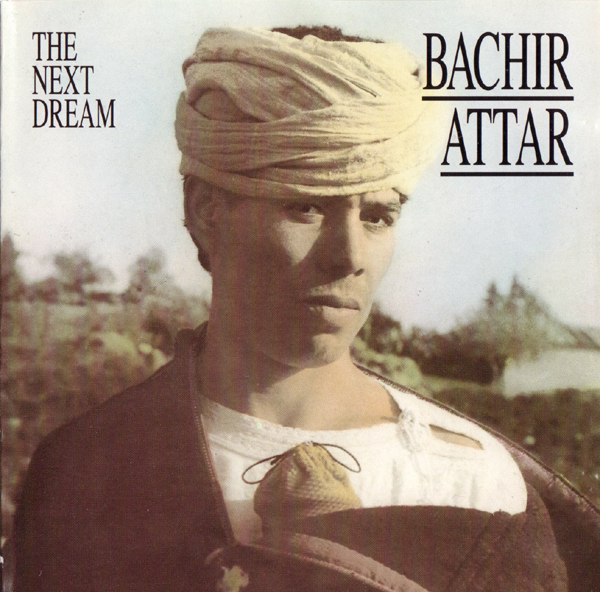BACHIR ATTAR


1/ Ceremonies Against the Night of the Devil (Attar) 4.20
2/ Under the Shadow of Liberty (Attar) 5.52
3/ The 1001 Nights (Attar) 8.17
4/ Here We Stay (Attar) 6.32
5/ Mixed Cultures (Attar) 5.21
6/ Full Moon In the Window (Attar) 5.58
7/ The Next Dream (Attar) 4.48
Recorded and mixed at Greenpoint Studio, Brooklyn, New York January 1992
Engineer: Oz Fritz
Mixed by Oz Fritz for High Velocity
Produced by Bill Laswell
Executive Producer: Kurt Renker
Mastered by Howie Weinberg at Masterdisk
Bachir Attar: ghaita, gimbri, lira, percussion; Aiyb Dieng: chatan, congas, doff,
bass drums, tom toms, metal percussion; Maceo Parker (2,3,5): alto saxophone,
flute.
1992 - CMP (Germany), CMP CD 57 (CD)
Cliff Furnald (courtesy of the Rootsworld website)
Bachir Attar and The Master Musicians of Jajouka have attracted many Western admirers over the years, from William Burroughs and Ornette Coleman to Brian Jones, whose recording of the Moroccan troupe caused a stir in 1972. Here, bassist and producer Bill Laswell follows his recording of the whole troupe with a slimline effort embracing its leader, Bachir Attar, Senegalese percussionist Aiyb Dieng and funk sax master Maceo Parker. The result isstartling: a kind of spaced-out roots music, led by Attar, most memorably on ghaita —or woodwind— which he plays to droning and hypnotic effect. The opening track suggests bees swarming around thunderous drums; on Here We Stay, Attar switches to lute, while The 1001 Nights and Mixed Cultures pull Parker's lyrical alto sax into a musical whirlwind that should appeal to the open-eared everywhere.
Chris Stapleton (courtesy of the Center of High Diffusion website)